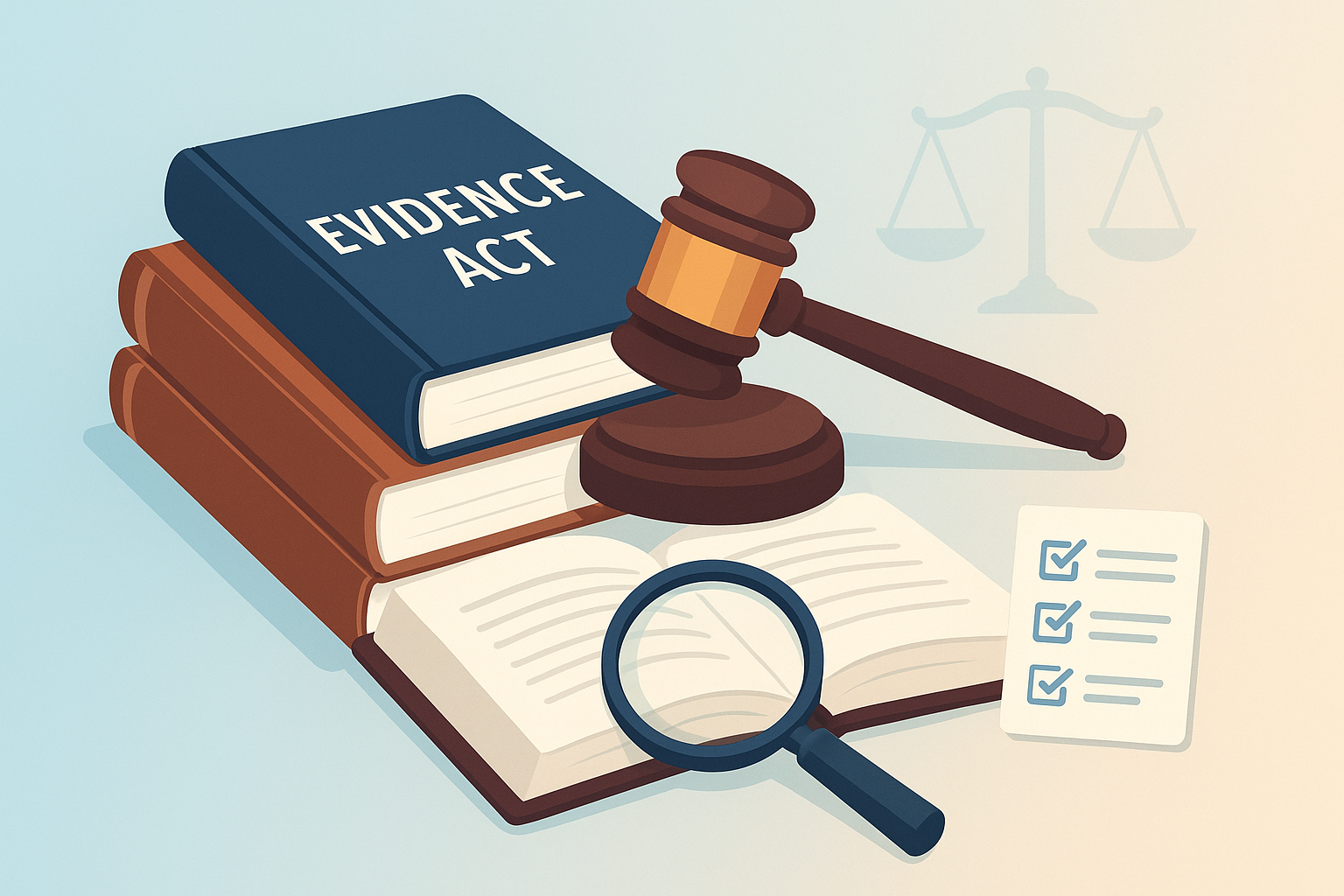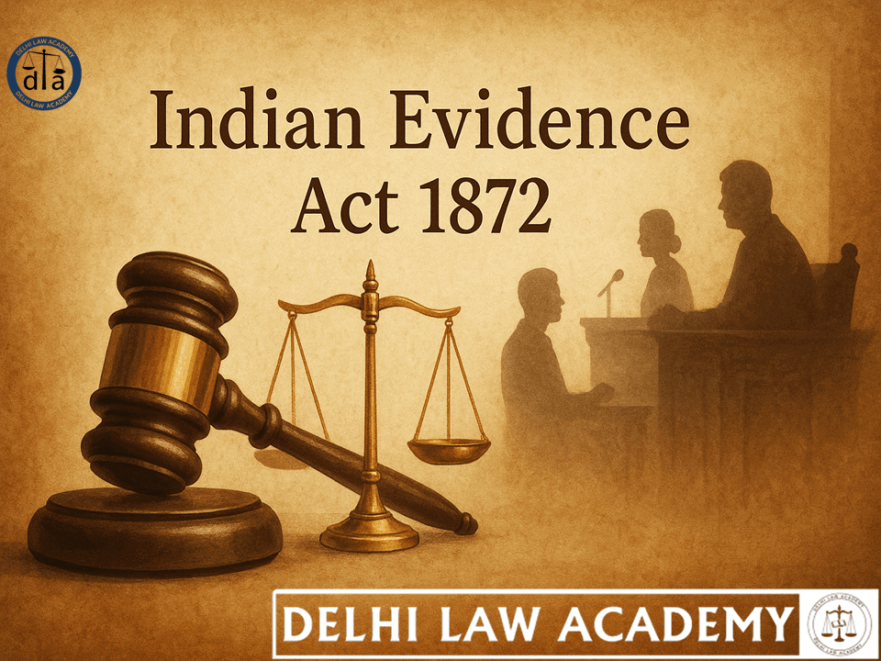
📖 A Note on Section 27 of the Evidence Act – Discovery of Facts from Accused
⚖️ The Indian Evidence Act, 1872: Section 27
Information received from accused, proved — Section 27
- When a fact is discovered in consequence of information received from an accused person in custody of a police officer, that part of such information which relates distinctly to the fact discovered may be proved.
Section 27 is in the form of a proviso, and partially lifts the ban imposed by Sections 25 and 26.
📜 Judicial Interpretation of Section 27: A Landmark Privy Council Judgment
Pulukuri Kotayya v. Emperor (1947 Privy Council) – Sir John Beaumont
- Section 27, which is not artistically worded, provides an exception to the prohibition imposed by the preceding sections and enables certain statements made by a person in police custody to be proved.
- The condition necessary to bring the section into operation is that the discovery of a fact in consequence of information received from a person accused of any offence in the custody of a police officer must be deposed to… and thereupon so much of the information as relates distinctly to the fact thereby discovered may be proved.
- The section is based on the view that if a fact is actually discovered in consequence of information given, some guarantee is afforded thereby that the information was true, and accordingly, can be safely allowed to be given in evidence.
❓ Questions Posed by the Bench
- What is the “fact discovered” in such a case?
- Is it the physical object produced?
- Is it that any information which relates distinctly to that object can be proved?
✅ Answer
- It is fallacious to treat the “fact discovered” as equivalent to the object produced.
- The fact discovered embraces the place from which the object is produced and the knowledge of the accused as to this, and the information given must relate distinctly to this fact.
- Information as to past use or history of the object is not related to its discovery in the setting in which it is discovered.
🔍 Illustration
Example 1: “I will produce a knife concealed in the roof of my house.”
This leads to the discovery of the fact that a knife is concealed in the house of the informant to his knowledge. If the knife is proved to have been used in the commission of the offence, the fact discovered is very relevant.
Example 2: “I will produce a knife concealed in the roof of my house with which I stabbed A.”
The words “with which I stabbed A” are inadmissible since they do not relate to the discovery of the knife in the house.
Except in cases where possession or concealment of an object constitutes the gist of the offence, it is rare that discovery evidence forms the foundation of the case. It is usually only one link in the chain of proof.
📖 Facts of the Case
Statement made by accused Sydayya:
“I, Kotayya and people of my party lay in wait for Sivayya and others at about sunset time. We all beat Sivayya and Subayya to death. The remaining persons ran away. Ramayya who was in our party had a spear in his hands. He gave it to me then. I hid it and my stick in the rick of Venkatanarasu in the village, I will show if you come. We did all this at instigation of Pulukuri Kotayya.”
👉 The whole of this statement is inadmissible except the passage: “I hid it (a spear) and my stick in the rick of Venkatanarasu in the village, I will show if you come.”
Confession by accused to Police Sub-Inspector:
“I stabbed Sivayya with a spear. I hid the spear in a yard in my village. I will show you the place.”
👉 The first sentence (“I stabbed Sivayya…”) is inadmissible.
📌 Related Sections of the Evidence Act
📝 Section 28 – Confession made after removal of ITP
If a confession referred to in Section 24 is made after the impression caused by the inducement, threat, or promise has been fully removed, it is relevant.
🚫 Section 24 – Confession caused by inducement, threat, or promise
A confession made by an accused person is irrelevant in a criminal proceeding if it was caused by inducement, threat, or promise from a person in authority, giving the accused grounds to believe that making it would provide advantage or avoid harm.
🔒 Section 29 – Confession under promise of secrecy, deception, or intoxication
If such a confession is otherwise relevant, it does not become irrelevant merely because it was made under a promise of secrecy, through deception, intoxication, or in response to questions which the accused was not bound to answer.
📚 Continue Your Evidence Act Preparation
Don’t stop here! Strengthen your knowledge of the Evidence Act with our other fully solved tests:
📘 Free Study Material for Judiciary Aspirants!
Download our FREE study material prepared by Delhi Law Academy’s expert faculty.
❓ FAQs on Section 27 of the Evidence Act
Section 27 allows only that portion of information received from an accused in police custody to be admissible which distinctly relates to a discovered fact. This acts as a limited exception to the bar imposed by Sections 25 and 26 of the Evidence Act.
The Privy Council in Pulukuri Kotayya v. Emperor clarified that the “fact discovered” is not merely the object produced but also includes the place of discovery and the accused’s knowledge about it. Statements beyond that are inadmissible.
The fact discovered embraces the place where the object was found and the accused’s knowledge of it. For example, if an accused says “I hid a knife in my roof,” the fact discovered is the concealment of the knife in the roof to his knowledge, not the history of its use.
No. Statements such as “I stabbed A with this knife” are inadmissible since they relate to the past use of the object, not its discovery. Only the part about concealment or location of the weapon can be proved.
Sections 25 and 26 bar confessions made to police or while in police custody. Section 27 partially lifts this ban by allowing discovery-related facts to be proved. However, Section 24 excludes confessions made under inducement, threat, or promise.
No. Evidence under Section 27 is only one link in the chain of proof. Conviction cannot rest solely on it—it must be supported by other admissible evidence presented in court.
Contact us
📍 Delhi Law Academy – Jaipur Branch
6C, Tower 2, Coaching Hub, Pratap Nagar, Jaipur – 302033
📞 Phone:
+91 9911916552
+91 8447285606
✉️ Email:
contactus@delhilawacademy.com

